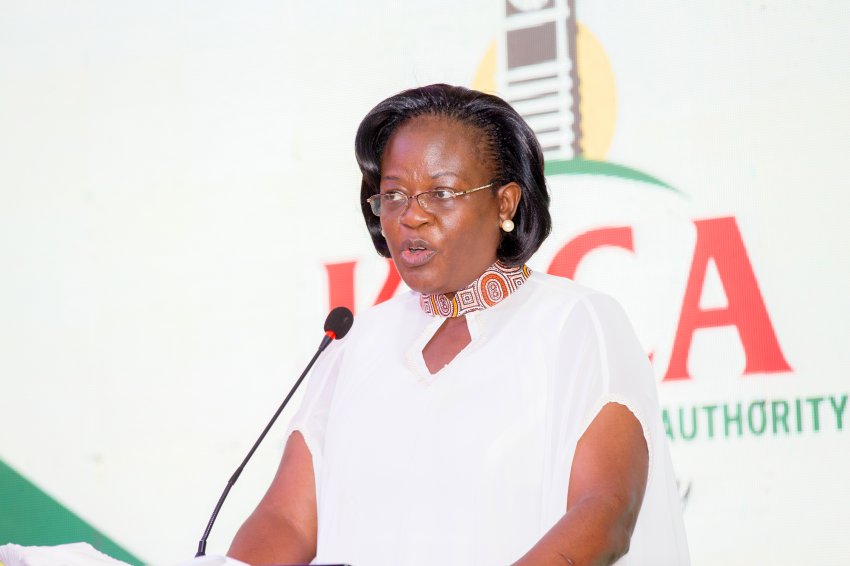Letters
Is the police’s PSU a toothless dog?

Back stops with him; Gen. Kale Kayihira is Uganda’s Police Chief
Sometime ago, Richard Mivule complained that there is serious lack of professionalism among his staff, after six of them were recently arrested over various malpractices, in Luweero District alone.
He noted that in Bamunanika County, a detective attached to Zirobwe police station was remanded for shooting dead a suspect, while the officer in charge of Kasana police, was prosecuted for allegedly extorting a Ugshs 600,000 from a cattle thief.
At Luweero police station, a special police Constable was locked for two days after he was nabbed with five kilograms of marijuana that had been stored as an exhibit!
All these incidents can be attributed to lack of professionalism among the staff, lack of training among others.
The professional standards unit (PSU) was formed as yet another arm of the police to check and balance behavioral and professional manners, offer refresher courses, training and disciplining un professional police officers for better service delivery and accountability.
Formed in 2001, the unit has managed to handle cases of misbehavior in a bid to improve police professionalism and public perceptions that would improvepoliceeffectiveness against crime. Worrisomely enough, the impact seems to be low!!
The public perception of professional standards unit spells doom as a section of the public believe that it is not a professional standards body, but rather a toothless barking dog that cannot really bite! Being the fact that the public has not felt the impact and effectiveness of PSU on ground, the unit has been rendered powerless and thereby giving police officers yet another green ticket to indulge in crime and other unprofessional behaviors while on duty. Cases of police officers acting as public nuisance – in a manner that he/she cannot differentiate between what is lawful and what is unlawful posits a-hard-to imagine situation for the future of the force!
What next for professionalism in the force?
The notion of police professionalism gained currency in the US and UK in the mid-20th century as police departments sought to move beyond the idea of a police officer as an unskilled night watchman to someone with a more substantial, respectable, societal role.
The development followed a renewed recognition that public perceptions of police impacted on police effectiveness. It was believed that by improving police professionalism, public perceptions would improve; making police more effective against crime.This is what is missing here!
Policing has always had outstanding people who work tirelessly to serve local communities.
Indeed, many police officers have paid the ultimate price by putting themselves in harm’s way to keep the public safe. Call me old fashioned, but if I may ask, Does Ugandan police really have an implementable Code of Ethics- that would set out the principles and standards of behavior we expect to see from police professionals?
A new era of professional policing supported by research, evidence and regulatory governance is the only driving force towards a healthy policing.
This can be achieved through the development of faculties of policing at universities, providing a scientific knowledge base for police work. This knowledge would feed into a Royal Academy of Policing that standardizes and regulates training.
More proactive measures like what happened in Britain in 2011 when it was proposed that British police should have to pay an annual membership fee to be registered as police officers with a regulatory and standards-setting body. This body would serve as the public’s guardian in ensuring police meet professional standards or risk losing their license to practice – this helped standardize professionalism and effectiveness of police in Britain.
It applies to every individuals who works in policing, whether a warranted officer, member of police staff, volunteer or someone contracted to work in a police force, one must keep in mind at all times that the public expect you to maintain the highest standards of behavior. You must, thereforethink about how the public may regard your behavior; – whether on or off duty.
Behavior that does not uphold the policing principles or which falls short of the expected standards of professional behavior set out in Code of Ethics should be dealt with: according to the severity and impact of any actual, suspected or alleged breach at the most appropriate level in a timely and proportionate manner in order to maintain confidence in the whole process
I have always warned that police are often taught about the law but not about the causes, prevention and responses to crime, and that this reduces their effectiveness. I have also reflected on the manner in which over a hundred years ago, agricultural and medical sciences generated knowledge that revolutionized the manner in which farming and medicine were practiced.
I believe a similar reform is necessary and possible for the public police.
Richard Musaazi is a British and Ugandan Citizen, based in UK. E-mail; musonirichard@gmail.com
Comments
















